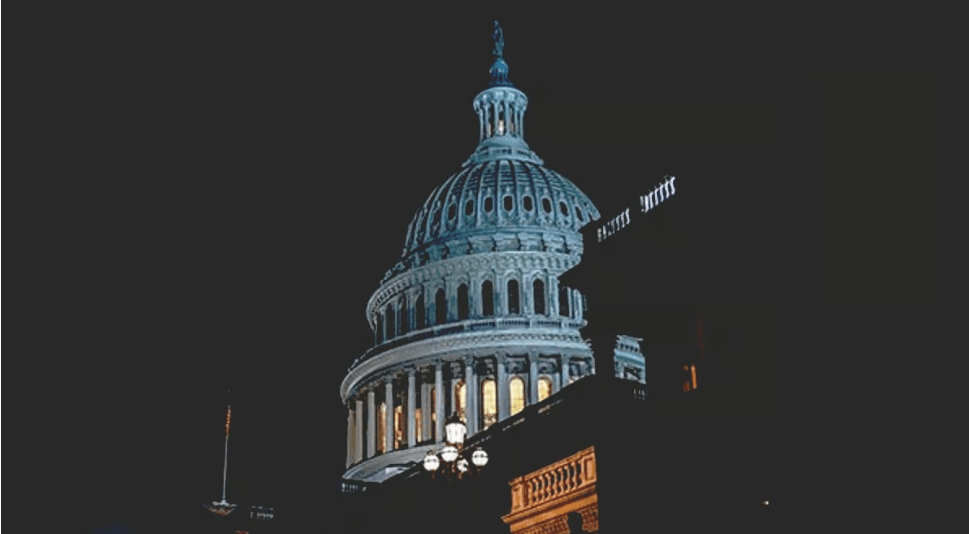Congress
WASHINGTON – After much delay, lawmakers are working quickly on Friday to approve the last spending bill for the current fiscal year, which will finance federal agencies and defer any potential government shutdown until later.
A $1.2 trillion bill that merges six yearly spending measures into one is anticipated to be spared by the House and Senate on Friday night when funding for some important government agencies is scheduled to expire at midnight. Defense would receive more than 70 percent of the funding.
The bill is being presented by Republican Louisiana Speaker Mike Johnson using a simplified procedure that needs two-thirds of the vote to pass.
It will pass. We’re whipping the bill and I expect a good number
Johnson
referring to how leadership rallies support for a bill.
Practically speaking, there would be little effect even if Congress missed the federal funding deadline of midnight because Senate business might take some time. With many government services supported by past law and the majority of federal employees off work over the weekend, the “shutdown” would mostly go down without a hitch unless things were very serious by Monday.
As House Republicans rebelled against what has become an annual tradition of asking them to vote on one big, complex package with little time to analyze it or face a shutdown, lawmakers divided this fiscal year’s budget bills into two sections.
With conservatives pushing for more policy mandates and sharper budget cuts than a Democratic-led Senate or White House would contemplate, it has taken Congress six months into the current fiscal year to come close to the finish line. Some temporary, stopgap budget legislation was needed to maintain agency funding while discussions were ongoing due to the deadlock.
Just hours before the departments’ funding expired, the first set of full-year budget measures, which included financing for the departments of Veterans Affairs, Agriculture, and Interior, among others, passed Congress two weeks ago. Legislators are currently thinking about the second package in a comparable situation.
Voting will begin with the House. Party leaders are citing the more than 3% increase in defense spending as one of the reasons Republicans ought to support it. Service personnel’ salary increases of 5.2% are funded by this measure.
House Majority Leader Steve Scalise, a Republican from Louisiana, stated, “At a time when the world is on fire, more than ever, we need to make sure that we are properly funding our nation’s defense and supporting our troops.”
The Departments of Labor, Homeland Security, Health and Human Services, and others are also funded under the 1,012-page measure.
While certain agencies, like the Environmental Protection Agency, are suffering, and many agencies’ budgets will not keep up with inflation, nondefense expenditure will remain essentially unchanged from the previous year.
Discretionary expenditure for the fiscal year will total around $1.66 trillion when the two packages are combined. That does not include funding the nation’s mounting debt or initiatives like Social Security and Medicare.
Representative Byron Donalds (R-Fla.) stated that he anticipates a higher number of Republicans voting to oppose the second spending bill than the first. This is a result of Johnson’s disregard for a House rule requiring legislators to study a measure for 72 hours before to voting on it.
However, following the 72-hour guideline would result in several important government institutions losing their financing. Additionally, some legislators disagree with some of the earmarked projects—projects that members were able to win for their congressional districts—that are included in the laws.
Meanwhile, elements about Israel and border policy may prompt more Democrats to vote against the second budget plan.
The U.N. Relief and Works Agency is the primary provider of food, water, and shelter to people in Gaza. House Republicans were able to enact a measure that forbids financing for the agency through March 2025.
Republicans are insisting on cutting off funding to the agency after Israel alleged that a dozen employees of the agency were involved in the attack Hamas conducted in Israel on Oct. 7.
However, the fact that many relief organizations claim there is no way to replace its capacity to provide the humanitarian aid that the US and other countries are attempting to send to Gaza, where 25% of the 2.3 million population are malnourished, worries some senators about the embargo.
The top Democrat on the House Appropriations Committee, Rep. Rosa DeLauro, acknowledged that the clause has caused some rifts with other Democrats but also noted that generally, Democrats had been able to win more humanitarian help. It will rise from the levels of the previous year by almost $336 million.
I think we’re going to get there
DeLauro
To win over support from Republicans, Johnson has also touted some of the spending increases secured for about 8,000 more detention beds for migrants awaiting their immigration proceedings or removal from the country. That’s about a 24% increase from current levels. Also, GOP leadership highlighted more money to hire about 2,000 Border Patrol agents.
Meanwhile, Democrats are gloating over additional childcare facilities for military families and a $1 billion boost for Head Start programs. They also highlighted increases in financing of $100 million for Alzheimer’s research and $120 million for cancer research.
Senator Patty Murray, a Democrat from Washington, stated, “We defeated absurd cuts that would have been a gut punch for American families and our economy.”
The expenditure in the plan mostly corresponds to a deal that former Speaker Kevin McCarthy struck with the White House in May 2023. Under that arrangement, spending was limited for two years and the debt ceiling was postponed until January 2025 in order to allow the federal government to continue funding its obligations.

The Fiscal Responsibility Act, derived from last year’s deal, would save the federal government almost $1 trillion over the next ten years, according to Shalanda Young, director of the White House Office of Management and Budget, who spoke before legislators on Thursday.
Both sides expressed dissatisfaction with the time the process has taken and noted that the outcome was exactly what many had anticipated. They consistently forewarned that Republicans would not achieve the majority of policy objectives or reduce spending beyond what McCarthy and the White House had reached last year.
“We adhered to the budget constraints that Kevin McCarthy worked out. Rep. Don Bacon, a Republican from Nebraska, stated, “That was going to be the reality all along.” “People were thinking we’re going to something different than what McCarthy and the president agreed upon, and they were living in a dream world.”
McCarthy, a Republican from California, lost his position as speaker a few months after negotiating the debt ceiling agreement. In the end, eight Republicans sided with Democrats to unseat McCarthy as speaker. Furthermore, a portion of the disgruntled parties are also not satisfied with the budget.
“I’m not sure if they have enough votes to make this pass. Rep. Matt Gaetz, a Republican from Florida, remarked, “We’ll see.” “I’m trying to get enough votes to end it.”
Read More News
- Intel is getting ready to spend $100 billion in four US states
- A former New Mexico county commissioner who was banned for rebellion on January 6th has had his appeal denied by the Supreme Court.
Click here for the latest news of all over the world – Insightsyncs, your source of news.





